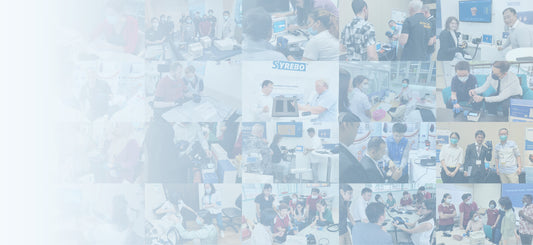RAPAEL NEOFECT GLOVE
 RAPAEL Smart Glove - NEOFECT uses VR technology for post-stroke rehabilitation smart gloves. It is used for hand function rehabilitation training after stroke and to help people with hand (wrist) injuries recover their hands. High-tech rehabilitation equipment for mobility.
RAPAEL Smart Glove - NEOFECT uses VR technology for post-stroke rehabilitation smart gloves. It is used for hand function rehabilitation training after stroke and to help people with hand (wrist) injuries recover their hands. High-tech rehabilitation equipment for mobility.
RAPAEL intelligent rehabilitation gloves use VR technology (virtual reality) to provide the trainer with sensory simulation, allowing the trainer to face a three-dimensional simulated real life, with an immersive sense of immersion, perfect interactivity with the environment, and give full play to subjective initiative and seek solutions to problems during training.
Put on the RAPAEL smart rehabilitation gloves, connect to the Neofect APP, and start relaxing rehabilitation treatment at home through rehabilitation games.
Features:
- Sensor technology captures the patient's movements and transmits data. The bend sensor is a variable resistor that changes as it bends.The sensor is a 9-axis motion and position sensor that includes 3 acceleration channels, 3 angular rate channels, and 3 magnetic field channels to measure wrist movement. They are connected to a computer system that accurately calculates the amount of movement of individual fingers.
- Rapael smart gloves have built-in sensors that monitor and track patients’ performance while playing games and record relevant data. At the same time, artificial intelligence technology is used to learn patients’ habits, movements and other information, and to customize and recommend rehabilitation training games and programs for patients.
- Ergonomic design for patient experience. NeoFect smart gloves use special elastomer materials, are lightweight, easy to wear, and can easily perform various joint movements. Elastomeric materials are also easy to clean and maintain. The gloves only weigh about 132 grams.
- Regularly updated rehabilitation training games. Neofect rehabilitation solutions provide a variety of training tasks, such as asking patients to drink a glass of wine, play darts and other entertaining ADL-related tasks. The game tasks take into account both clinical effectiveness and entertainment factors, so that the training not only helps to restore the hand's Functional, and fun. The learning progress algorithm automatically adjusts the difficulty of the training game to the appropriate level to encourage patients' enthusiasm and continuous challenge to new training difficulties.

